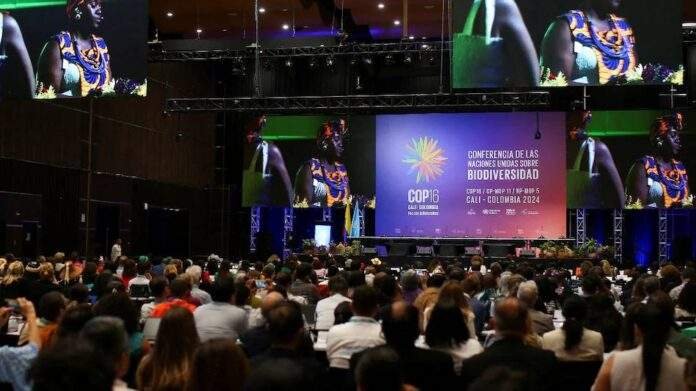United Nation’s COP16 Summit: Home to about two-thirds of the world’s species, Central America will provide a vital backdrop to an agreement on using and paying for genetic data from nature with negotiators closing in on an understanding this month at the UN COP16 nature summit. Hailed as the digital DNA of nature, “digital sequence information” or DSI, is at the heart of discussions over equitable sharing of benefits from genetic resources.
Countries near deal on use of and payment for genetic data at UN COP16 Summit
Organisms develop and function through genetic information, embedded in their unique sequences and codes. Scientists have been tapping the genetic codes of plants, animals, and microbes for decades to identify compounds with commercial value, particularly in pharmaceuticals and cosmetics industries.
Most of these discoveries find their roots in biodiversity-rich countries, from tropical giants such as Brazil and India. These nations are worried by the incidences of corporations and researchers picking on biodiversity without the community around, hence no royalties are raised to the countries of origin. This has led to a growing demand for a system that should not only prevent exploitation but also fair compensation on the use of genetic resources.
At COP16, it endeavours to establish an integrated, multilateral approach that can also control the application of DSI with appropriate revenues to facilitate conservation-related programs in developing countries.
Legal Complexity of Genetic Data Use Discussed at COP16 Summit
Increased use of genetic material has made the legal dynamics surrounding them increasingly complex. Today, every country has developed its system of laws to manage access and use of their own genetic resources, hence creating an incoherent quilt of regulations that companies and research scientists have to navigate.
This regulatory maze has been one of the key stumbling blocks for global cooperation in research. Companies working on innovations related to genetics face either delays or legal obstacles as a result of differences in national policies concerning genetic data. This system, designed to protect biodiversity-rich countries, has inadvertently created hurdles for scientific cooperation.
Furthermore, the legal framework has resulted in meager financial gains to the donor countries. The recipient developing nations have complained that the existing mechanisms fail to equitably recompense them for the exploitation of their genetic resources.
Closing the Gap: Fair Compensation and Conservation
The discussions in COP16, which will address the long-standing issues, are crucial in setting up a system more equitable with benefits from genetic research. Countries look for a global mechanism that would ensure revenues from the use of DSI flow back to countries of origin, especially in the Global South.
Under this new system, firms and researchers utilizing DSI would be required to contribute to a global fund or pay royalties with the contributions then being channeled towards conservational efforts in countries providing the genetic resources. This approach has been seen as a means of finding a balance between the interests of biodiversity-rich nations and commercial entities that depend on genetic information for product development.
Species-rich countries point out that their natural resources are being exploited unless there is an equitably arranged compensation scheme. The calls for transparent and predictable rules to be designed that will facilitate research while providing an equitable share of the income to the countries where the genetic resources are located are done by business as well as research interests.
Future: DSI and Conservation End
The world’s biodiversity crisis will necessitate the exploitation of genetic information for conservation purposes. Genetic studies can reveal how species adapt, resist diseases, and survive in unfavorable conditions. Such understanding will be helpful if scientists tap into the potential of DSI to learn about the mechanisms that support biodiversity.
Still, the success of these efforts will depend on what the result of the COP16 negotiation will be: an agreement will likely be struck among the countries regarding how to regulate the utilization of DSI, ensuring fair compensation could mark a big step forward in conserving biodiversity and in the sustainable use of genetic resources.
As the talks unfold, one would notice that the eyes of the world are on COP16 in determining if countries can bridge the divide between conservation needs and commercial interests. An equitable system for DSI can open benefits to biodiversity-rich nations but also stimulate global collaborations on the use of genetic data for good to benefit humanity at large.
ALSO READ: Zomato Shares Fall 3.58% Amid Market Downturn, Trading at Rs 256.2 on October 22












